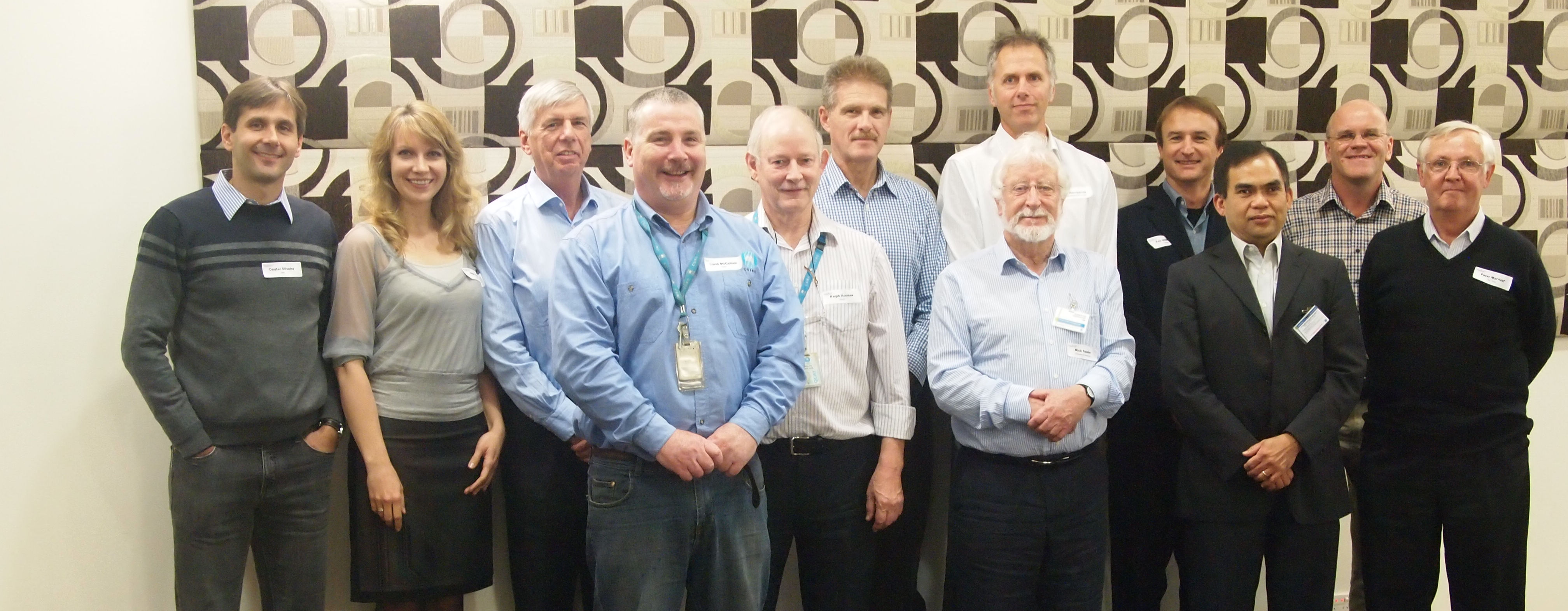P1097 - Systematic Evaluation of Transportable Moisture Limit Measurement Methods for Iron Ore Fines Bulk Cargoes

Value
AUD $1,958,500
Commencement Date
May 2012
Duration
2 years
Program Manager
Olga Verezub
Research Providers
Creative Process Innovation Pty Ltd; CSIRO Process Science and Engineering; TUNRA Bulk Solids (University of Newcastle); University of Auckland
Sponsors
BHP Billiton Innovation Pty Ltd; Cliffs Asia Pacific Iron Ore Pty Ltd; CME (The Chamber of Minerals & Energy Western Australia); Fortescue Metals Group; Minerals Council of Australia; Rio Tinto Technological Resources Pty Ltd; Roy Hill; Vale Australia
PROJECT SUMMARY
The objective of this project was to advance the science and engineering that underpin the measurement of TML for shipping iron ore fines bulk cargoes, and to recommend the best method(s) for ranking iron ore fines stability whilst being transported as a bulk cargo.
HIGHLIGHTS/DELIVERABLES/ADDITIONS
Major achievements of the project are:
- The Proctor/Fagerberg test was chosen as the most appropriate TML test for iron ore fines, and modifications were made to calibrate this test to the specific conditions encountered in shipping of iron ore fines. The resulting test is known at the PFT D80 test. A draft ISO Standard method for the PFT D80 test has been prepared and this was tabled at the ISO Standards meeting in Brazil in April 2014.
- Iron ore fines still retain significant bulk strength at the PFT D80 moisture level. While minor surface failures are possible, sub-surface failure modelling predicts that no failure is likely to occur under extreme vessel motions (i.e. worst 1% of possible vessel motion).
- Modelling of the liquefaction potential of iron ore fines at the PFT D80 moisture level subjected to expected vessel motion predicted that build up in excess pore water pressure and cyclic deformation were small and liquefaction did not occur.
Please see below feedback from the Sponsors companies:
Damien O’Dea, Specialist Technical at BHP Billiton expressed their view on the value BHP Billiton gained from the P1097 project: “The AMIRA P1097 project (Systematic Evaluation of Transportable Moisture Limit (TML) Measurement Methods for Iron Ore Fines Bulk Cargoes) was successful in adding to the science and understanding of shipping wet iron ore fines safely. The work supported the findings of the IMO Technical Working Group and helped in developing a new Iron Ore Fines Schedule and modified TML test that are now being included in the International Maritime Solid Bulk Cargoes Code. This outcome is important for the safe shipping and international trade of iron ore.”
Stephen Fox, Manager Production and Metallurgy, Roy Hill outlined the benefits Roy Hill obtained from the P1097 project: “Roy Hill was able to acquire significant value from the project to assist in our operations, of particular note was the opportunity to gain an advanced technical understanding of the mechanisms of liquefaction of iron ore fines and the development of the modified Proctor Fagerberg Test for the determination of TML. The knowledge gained from this project will assist Roy Hill to effectively manage its operations with respect to factors that contribute to liquefaction. Further, the laboratory test work conducted as part of the project demonstrated that Roy Hill Fines has enhanced liquefaction resistance and will form the foundation for further investigations to underpin the evidence provided by the project.”
The feedback from Dany Policarpo, Specialist Mining Engineer at Vale: “AMIRA P1097 project was extremely well-structured and was managed by AMIRA with competence. In our case, a company where ‘life matters most’, I would say that the most precious benefit received was the scientific demonstration that the cargoes we ship are safe in the way we ship them, and also the guidance on how to assess them on a routine basis, from the TML perspective.”